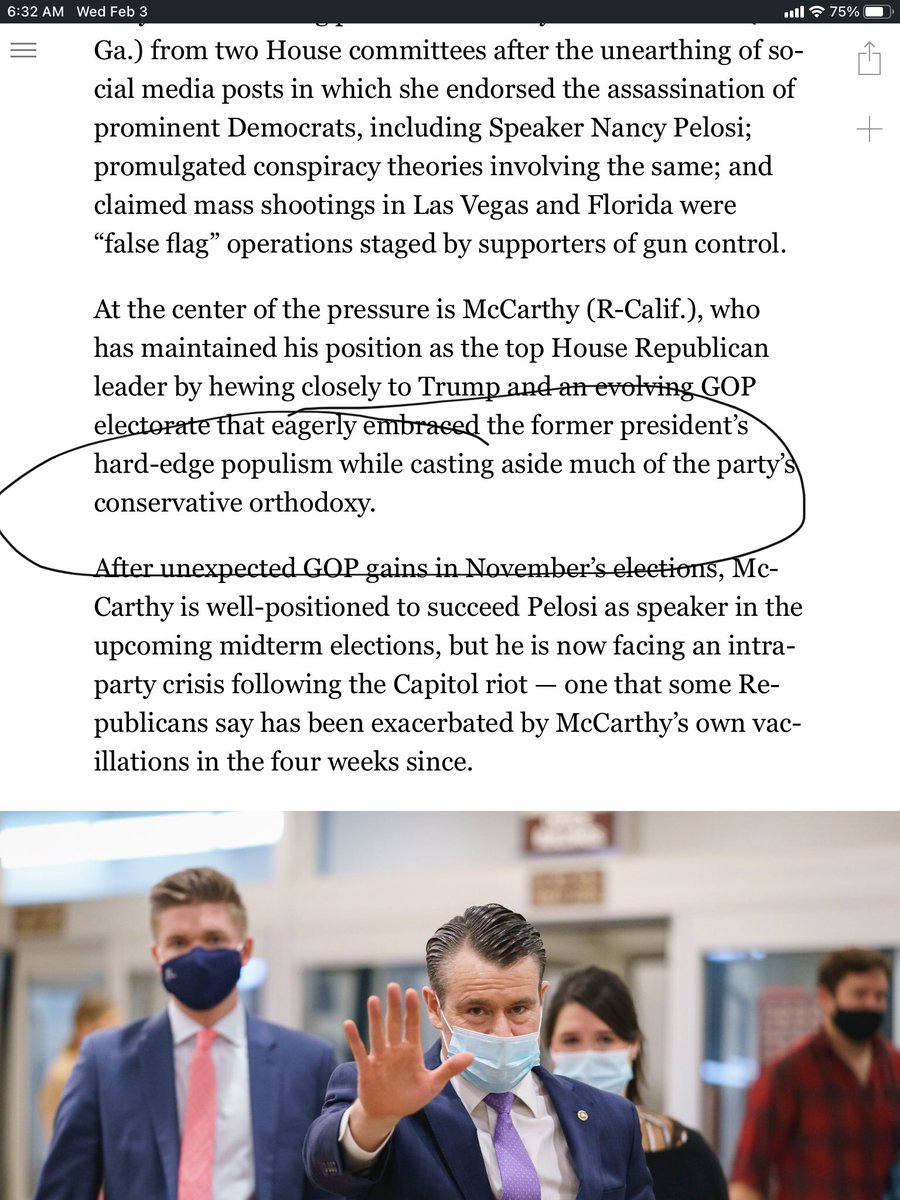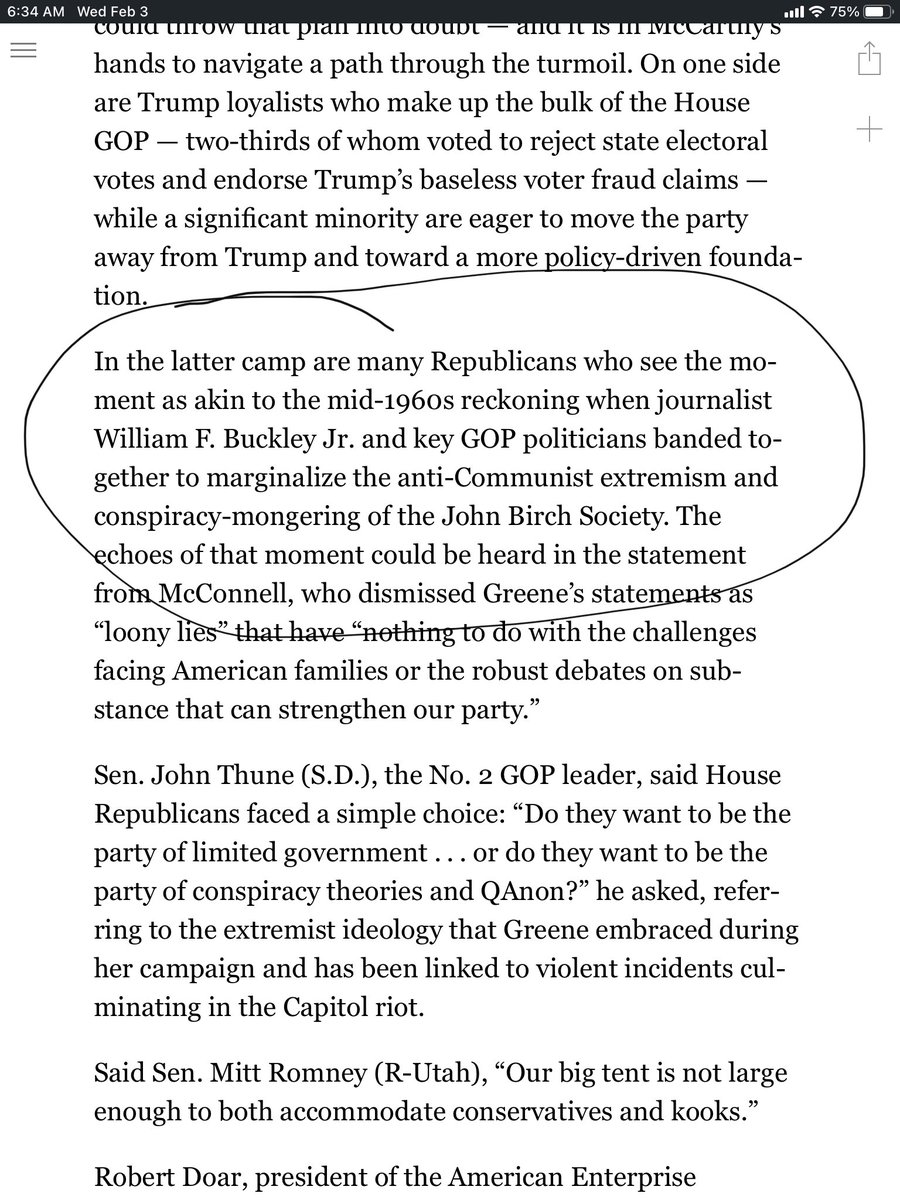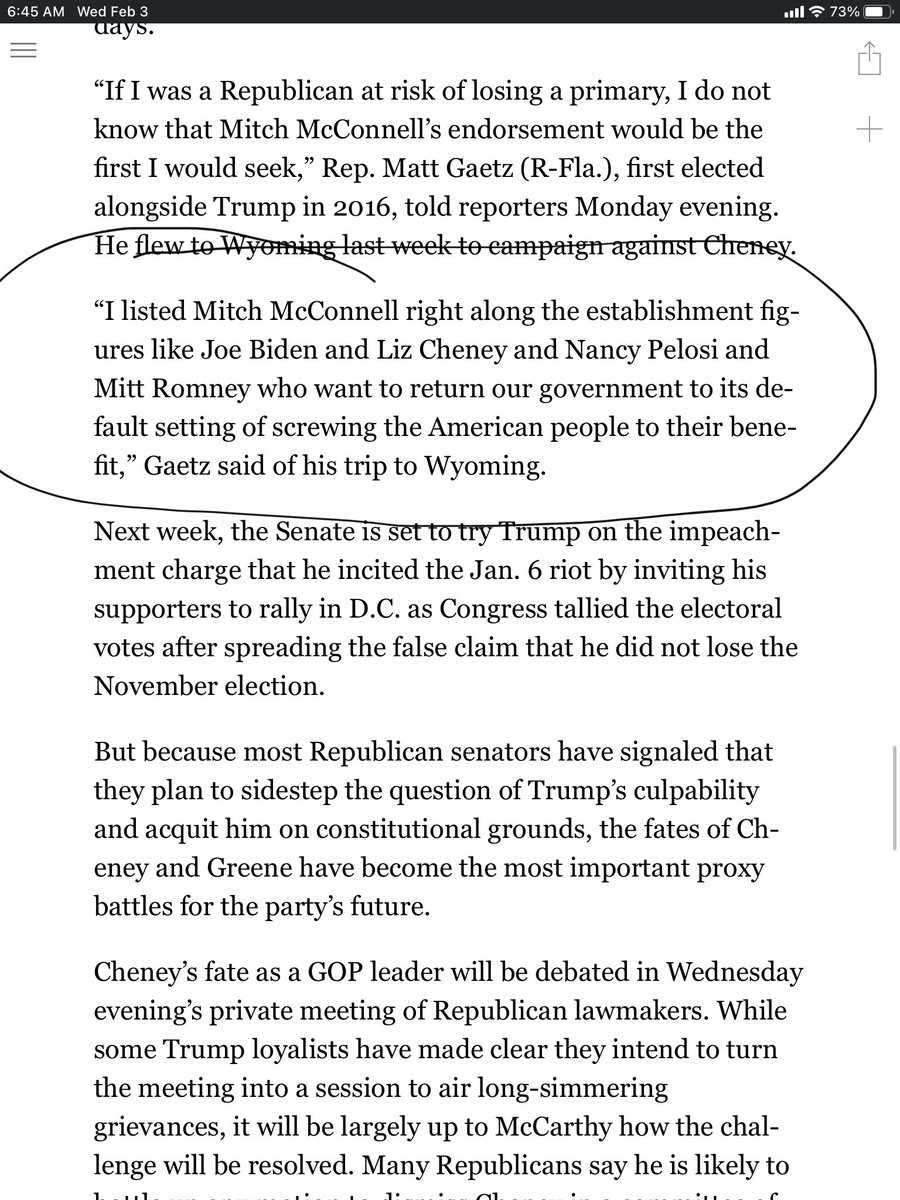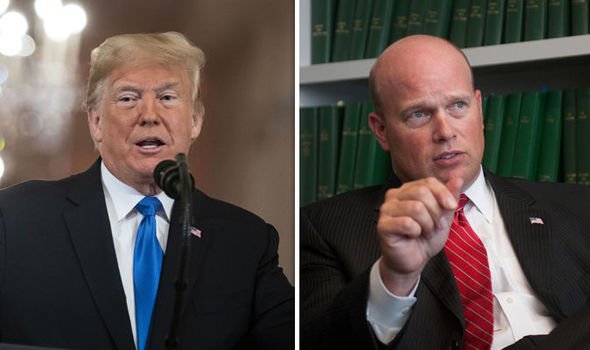That happened this year, and the majority of those challenges were heard on the merits.
This is an excellent question, and it's something that I've thought about some over the last couple of months.
Honestly, I think the answer is that the rationales for these rulings are not likely to unreasonably harm meritorious progressive OR conservative challenges.
Any merit to the notion that the rationales for some of these rulings will harm progressive challenges in future elections?
— Andrew Broering (@AndrewBroering) January 3, 2021
One says laches, another moot, another standing, sometimes with almost the same type of plaintiff.
That happened this year, and the majority of those challenges were heard on the merits.
Those are cases where laches is clear - particularly the prejudice element.
The theory Trump was advancing was that any deviation from state election law could be litigated in federal courts.
More from Mike Dunford
Good afternoon, followers of frivolous election litigation. There's a last-minute entry in the competition for dumbest pre-inauguration lawsuit - a totally loony effort to apparently leave the entire USA without a government.
We'll start with the complaint in a minute.
But first, I want to give you a quick explanation for why I'm going to keep talking about these cases even after the inauguration.
They're part of an ongoing effort - one that's not well-coordinated but is widespread - to discredit our fundamental system of government.
It's a direct descendent, in more ways than one, of birtherism. And here's the thing about birtherism. It might have been a joke to a lot of people, but it was extremely pernicious. It obviously validated the racist "not good enough to be President" crowd. But that wasn't all.
Don't get me wrong, that was bad enough. Validating racism helped put the kind of shitbird who would tweet this from an official government account into power. But it didn't stop
Woke-ism, multiculturalism, all the -isms \u2014 they're not who America is. They distort our glorious founding and what this country is all about. Our enemies stoke these divisions because they know they make us weaker. pic.twitter.com/Mu97xCgxfS
— Secretary Pompeo (@SecPompeo) January 19, 2021
(Also, if you agree with Pompeo about multiculturalism - the legendary melting pot - not being what this country is all about, you need to stop following me now. And maybe go somewhere and think about your life choices and what made you such a tool.)
This is a bit surprising, given that as of last time I checked nobody had been served and no appearance had been entered. I suspect it's an effort to make sure the case isn't "pending" on the 6th.
Link: https://t.co/oOJZD1F4x2
— Brad Heath (@bradheath) January 4, 2021
And, sure enough, still no proof of service on ANY defendant, still no appearance from defense counsel. And this is denying the motion for preliminary injunction but does NOT dismiss the case - which is potentially ominous for plaintiff's counsel.

This isn't a "happy judge" kind of first paragraph. Not even a little bit. Nope.

Y'all, this isn't even directed within a few hundred miles of my direction and I sill just instinctively checked to make sure that there's room for me to hide under my desk if I have to - this is a very not happy, very federal, very judge tone.

Also - the judge just outright said there's a bunch of reasons for dismissal. And not in "might be" terms. In definite fact ones. But the case isn't dismissed yet.
If I was plaintiffs counsel, I'd definitely be clearing under my desk right now, and possibly also my underwear.
More from Government
I don’t think the sharp opposition between “hard-edge populism” & “conservative orthodoxy” holds. Many of the Trump administration’s achievements were boilerplate conservatism. Its own website trumpets things like “massive deregulation,” tax cuts, etc. /2
https://t.co/N97v85Bb79

The claim that Buckley and “key GOP politicians banded together to marginalize anti-Communist extremism and conspiracy-mongering” of the JBS has been widely repeated lately but the history is more complicated. /3

This tweet by @ThePlumLineGS citing a paper by @sam_rosenfeld and @daschloz on the "porous" boundary between conservatives, the GOP and the far-right is relevant in this context.
There's a great paper called "The Long New Right" that tells the story of the GOP/conservative movement's failure to police extremists for the last 50 years.
— Greg Sargent (@ThePlumLineGS) January 28, 2021
It's highly relevant to the insurrection and Marjorie Greene's lunacy.
I summed it up here:https://t.co/DTlzGomy5h pic.twitter.com/Dhc38CDuE2
This is a separate point but I find it interesting that Gaetz, like Roy Moore did In his failed Senate campaign, disses McConnell. What are their actual policy differences? MM supported taking health care away from millions, a tax cut for the rich, conservative judges, etc. /5

You May Also Like
A thread 👇
https://t.co/xj4js6shhy
Entrepreneur\u2019s mind.
— James Clear (@JamesClear) August 22, 2020
Athlete\u2019s body.
Artist\u2019s soul.
https://t.co/b81zoW6u1d
When you choose who to follow on Twitter, you are choosing your future thoughts.
— James Clear (@JamesClear) October 3, 2020
https://t.co/1147it02zs
Working on a problem reduces the fear of it.
— James Clear (@JamesClear) August 30, 2020
It\u2019s hard to fear a problem when you are making progress on it\u2014even if progress is imperfect and slow.
Action relieves anxiety.
https://t.co/A7XCU5fC2m
We often avoid taking action because we think "I need to learn more," but the best way to learn is often by taking action.
— James Clear (@JamesClear) September 23, 2020




























